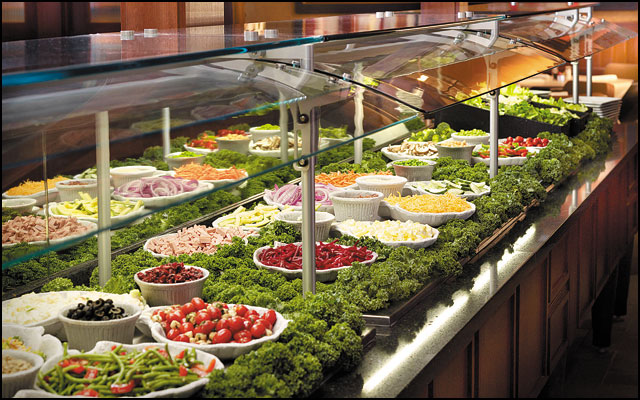1. Keep it simple.

Diets come and go, but a healthy diet doesn't have to be complicated. Instead of following trends, focus on eating high quality, wholesome food, like lean protein and complex carbohydrates. Load up on fruits and vegetables -- they should take up half of your plate.
2. Eat more fat.

It might seem counterintuitive, but snacking on healthy fats will keep you feeling full and satisfied, which will ultimately help you eat less. In other words, munching on a handful of almonds can help you stay away from that bag of chips.
3. Make your meals in advance.

Preparing several meals once a week will save a lot of time in the long run and will make it easy to eat homemade, healthy meals instead of takeout.
4. Drink more water.

Drinking more water will help curb your appetite and keep you energized. Keep a water bottle within reach, and remember that water-heavy foods and drinks like watermelon or tea count.
5. Buy your groceries once a week.

Going to the grocery store on a daily basis can drain valuable time and energy; even worse, shopping when you're hungry and in a rush can leave you vulnerable to temptation.
6. Follow a shopping list.
When you plan your meals and create a list, not only do you save money by buying only what you intend to use, you are also less likely to go for the unhealthy impulse buys.
7. Use the salad bar to your advantage.

If your veggies have a tendency to go bad, or you only need a small portion for a recipe, head to the salad bar and only take what you need.
8. If you can't eat them, drink them.
Smoothies are a healthy, efficient, and refreshing alternative to the same old salad. Green Thickies recommends blending liquid, greens, fruit, and optional fillers like oats, coconut, or nuts.
9. Stick to a schedule.

Eating when you are hungry will keep you from feeling like you are starving, so you'll be less likely to give in to cravings.
10. Get your beauty rest.


Sleep helps regulate hormones, which means that people who regularly get enough of it tend to make better food choices.


